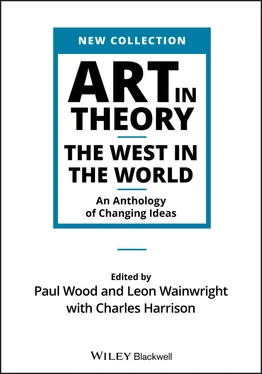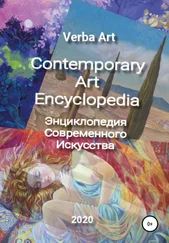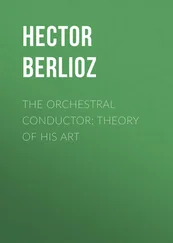If we run over the whole globe, or revolve all the annals of history, we shall discover every where signs of this sympathy or contagion of manners, none of the influence of air or climate.
We may observe that where a very extensive government has been established for many centuries, it spreads a national character over the whole empire, and communicates to every part a similitude of manners. Thus the Chinese have the greatest uniformity of character imaginable; tho’ the air and climate, in different parts of those vast dominions, admit of very considerable variations.
In small governments, which are contiguous, the people have notwithstanding a different character, and are often as distinguishable in their manners as the most distant nations. Athens and Thebes were but a short day’s journey from each other; tho’ the Athenians were as remarkable for ingenuity, politeness, and gaiety, as the Thebans for dullness, rusticity, and a phlegmatic temper. Plutarch, discoursing of the effects of air on the minds of men, observes that the inhabitants of the Piraeum possessed very different tempers from those of the higher town of Athens, which was distant about four miles from the former: But I believe no one attributes the difference of manners, in Wapping and St James’s, to a difference of air or climate. […]
Where any accident, as a difference of language or religion, keeps two nations inhabiting the same country from mixing with each other, they will preserve, during several centuries, a distinct and even opposite set of manners. The integrity, gravity, and bravery of the Turks, form an exact contrast to the deceit, levity, and cowardice of the modern Greeks.
The same set of manners will follow a nation, and adhere to them over the whole globe, as well as the same laws and language. The Spanish, English, French and Dutch colonies are all distinguishable even between the tropics.
The manners of a people change very considerably from one age to another; either by great alterations in their government, by the mixtures of new people, or by that inconstancy to which all human affairs are subject. The ingenuity and industry of the ancient Greeks have nothing in common with the stupidity and indolence of the present inhabitants of those regions. Candour, bravery, and love of liberty formed the character of the ancient Romans; as subtilty, cowardice, and a slavish disposition do that of the modern … Though some few strokes of French character be the same with that which Caesar has ascribed to the Gauls, yet what comparison between the civility, humanity, and knowledge of the modern inhabitants of that country, and the ignorance, barbarity, and grossness of the ancient? […]
If the characters of men depended on the air and climate, the degrees of heat and cold should naturally be expected to have a mighty influence, since nothing has a greater effect on all plants and irrational animals. And indeed there is some reason to think that all nations which live beyond the polar circles or between the tropics are inferior to the rest of the species, and are utterly incapable of all the higher attainments of the human mind. The poverty and misery of the northern inhabitants of the globe, and the indolence of the southern, from their few necessities, may, perhaps, account for this remarkable difference, without our having recourse to physical causes. This however is certain, that the characters of nations are very promiscuous in the temperate climates, and that almost all the general observations, which have been formed of the more southern or more northern nations in these climates, are found to be uncertain and fallacious. 1
IIC2 Jean‐Jacques Rousseau (1712–78) from ‘A Discourse on the Moral Effects of the Arts and Sciences’
Rousseau is widely associated with the concept of the ‘noble savage’ (cf. IC12). In fact he never uses the term; nonetheless, the underlying idea is at the heart of his work. His argument is the polar opposite of Hobbes, who regards the state of nature as a condition of internecine warfare (cf. IC10). For Hobbes, civilization represents progress out of that condition and requires a strong ruler to sustain it. For Rousseau, by contrast, those ills are the ills not of the state of nature but of society. The state of nature is not particularly benign, but it is not beset by the systemic violence of society. The present essay is notable for two main points. The first is that Rousseau argues forcefully for the complicity of the arts and sciences in the corrupt masquerade of civilization. To use a later terminology, for Rousseau what they do is buttress the self‐sustaining ideology of a society founded on inequality. Second is the point that Rousseau’s defence of the ‘primitive’ and the ‘barbarian’ against civilization is not a twenty‐first century argument about the complexity of such cultures. Rather, Rousseau’s point is to defend their supposed simplicity and naturalness, their very lack of cultural complexity, and turn that into a virtue compared to the artificial protocols of civilization. In this he is a precursor of the primitivism which played such a central role in the Modernist art of the early twentieth century. For Gauguin, Picasso and the Expressionists, their ‘noble savages’ were to be found in the outposts of nineteenth‐century European empires, above all in Polynesia and Africa, and their art was set against the ‘civilized’ bourgeois values of academic art (cf. IVA9 and VA passim ). For Rousseau, the civilizations corrupted by art include not only classical Greece and Rome but also Egypt and China. Against them he sets, somewhat surprisingly, the ancient Persians, and, more understandably, the Scythians. Importantly, he also includes the contemporary indigenous populations of North America: those who, for Hobbes, Locke and most subsequent thinkers of the eighteenth‐century European Enlightenment, represented the acme of the primitive (cf. IC10 and 17, IIC8). The present extracts are taken from ‘A Discourse on the Moral Effects of the Arts and Sciences’ [1750] in Jean‐Jacques Rousseau. The Social Contract and Discourses , translated with an introduction by G. D. H. Cole, London: Everyman edition, 1913, pp. 120–5.
It is a noble and beautiful spectacle to see man raising himself, so to speak, from nothing by his own exertions; dissipating, by the light of reason, all the thick clouds in which he was by nature enveloped; mounting above himself; soaring in thought even to the celestial regions; like the sun, encompassing with giant strides the vast extent of the universe; and, what is still grander and more wonderful, going back into himself, there to study man and get to know his own nature, his duties and his end. All these miracles we have seen renewed within the last few generations.
Europe had relapsed into the barbarism of the earliest ages; the inhabitants of this part of the world, which is at present so highly enlightened, were plunged, some centuries ago, in a state still worse than ignorance….
Things had come to such a pass, that it required a complete revolution to bring men back to common sense. This came at last from the quarter from which it was least to be expected. It was the stupid Mussulman, the eternal scourge of letters, who was the immediate cause of their revival among us. The fall of the throne of Constantine brought to Italy the relics of ancient Greece; and with these precious spoils France in turn was enriched. The sciences soon followed literature, and the art of thinking joined that of writing: an order which may seem strange, but is perhaps only too natural. The world now began to perceive the principal advantage of an intercourse with the Muses, that of rendering mankind more sociable by inspiring them with the desire to please one another with performances worthy of their mutual approbation.
Читать дальше












